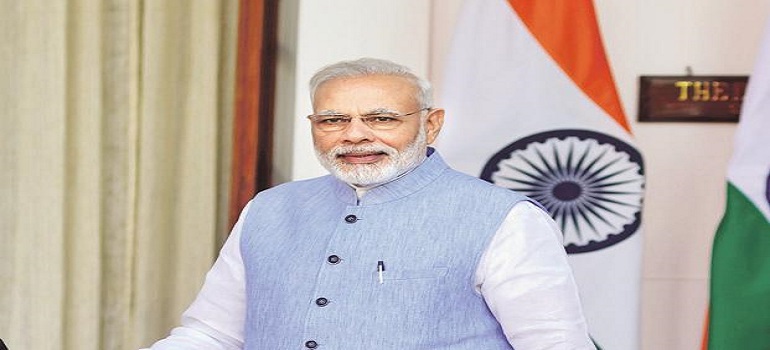
Prime Minister Narendra Modi on Independence Day announced a series of plans including saving Gangetic dolphins and Asiatic lions along the lines of Project Tiger to making Ladakh carbon neutral and reducing pollution in 100 cities, to protect the country’s environment and biodiversity.
Addressing the nation on Independence Day, the prime minister also spoke on renewable energy and the need to maintain a balance between development and the environment.
Referring to the National Clean Air Programme (NCAP), launched in January 2019, Modi said, “A special campaign is being worked out to reduce pollution in 100 selected cities with a holistic approach.” He announced the government’s big plans for Ladakh, which became a union territory in 2019.
“As Sikkim has made its mark as an organic state in the northeast, Ladakh, Leh and Kargil can also create their own niche as a carbon neutral unit. The Indian government has joined hands with the locals of the region to create a new model of development as per their own requirements, the prime minister said from the ramparts of the Red Fort.
Carbon neutrality means achieving a balance between emitting carbon and absorbing it from the atmosphere in carbon sinks. According to officials, Ladakh accounts for 0.1 percent of the country’s total emissions.
Asserting that the government took a bold step to meet the aspirations of the people of Ladakh by making it a union territory as had been their demand for several years, Modi said plans were also underway for the creation of 7,500 MW solar park.
Discussing plans to give a push to the country’s biodiversity, he announced projects to conserve Asiatic Lions and Gangetic dolphins while reminding the nation of the success of earlier projects, Project Tiger and Project Elephant.
India can say proudly that it is one of the very few countries where its area under forests is expanding. India is committed towards the promotion and conservation of its biodiversity.
We have successfully carried forward Project Tiger and Project Elephant. The tiger population has increased in India. In the coming days, we are starting Project Lion for Asiatic lions, he said.
Giving details, the prime minister said under Project Lion, work on the required infrastructure for the protection and security of Indian lions and a special type of health infrastructure will be undertaken. And emphasis will be laid on Project Lion, he said.
According to a report by the Ministry of Environment, Forests and Climate Change earlier this year, there was a 29 percent increase in the population of the Asiatic lions that live in Gujarat’s Gir forest, taking the number from 523 in 2015 to 674 in 2020.
According to the 2018 tiger census, figures for which were released in 2019, India’s wild tiger population increased by over 30 percent in four years — 2,967 up from 2,226 four years ago.
In his speech, the prime minister also announced the launch of Project Dolphin aimed at the conservation of Gangetic river dolphins, declared the National Aquatic Animal in 2010.
Also, one more work we want to promote and that is – Project Dolphin. We will focus on both types of dolphins living in the rivers and in the seas. This will also give a boost to biodiversity and also create employment opportunities. This is also a centre of attraction for tourism. So, we are going to move forward in this direction too, Modi said. He also stressed on the importance of renewable energy.
India has shown that the march towards development is possible by balancing the environment. Today, India is inspiring the entire world with its vision of one world, one sun and one grid, particularly in the field of solar energy, he said.
The prime minister said India has established itself as one of the five countries in the world in the generation of renewable energy and is finding solutions to pollution. India is both aware as well as involved in finding solutions to pollution. We are leaving no stone unturned whether it is the Swachh India campaign, smoke-less cooking gas, LED campaign, CNG-based transportation, or electric mobility.
We are emphasising on increasing the use of ethanol to reduce pollution caused due to petrol. What was the condition of ethanol in our country five years ago? Five years ago, there used to be only 40 crore litre production of ethanol. It has risen five times in the last five years. Today, we are producing 200 crore litres of ethanol which is proving to be very helpful towards our environment, he said.
Via : PTI

